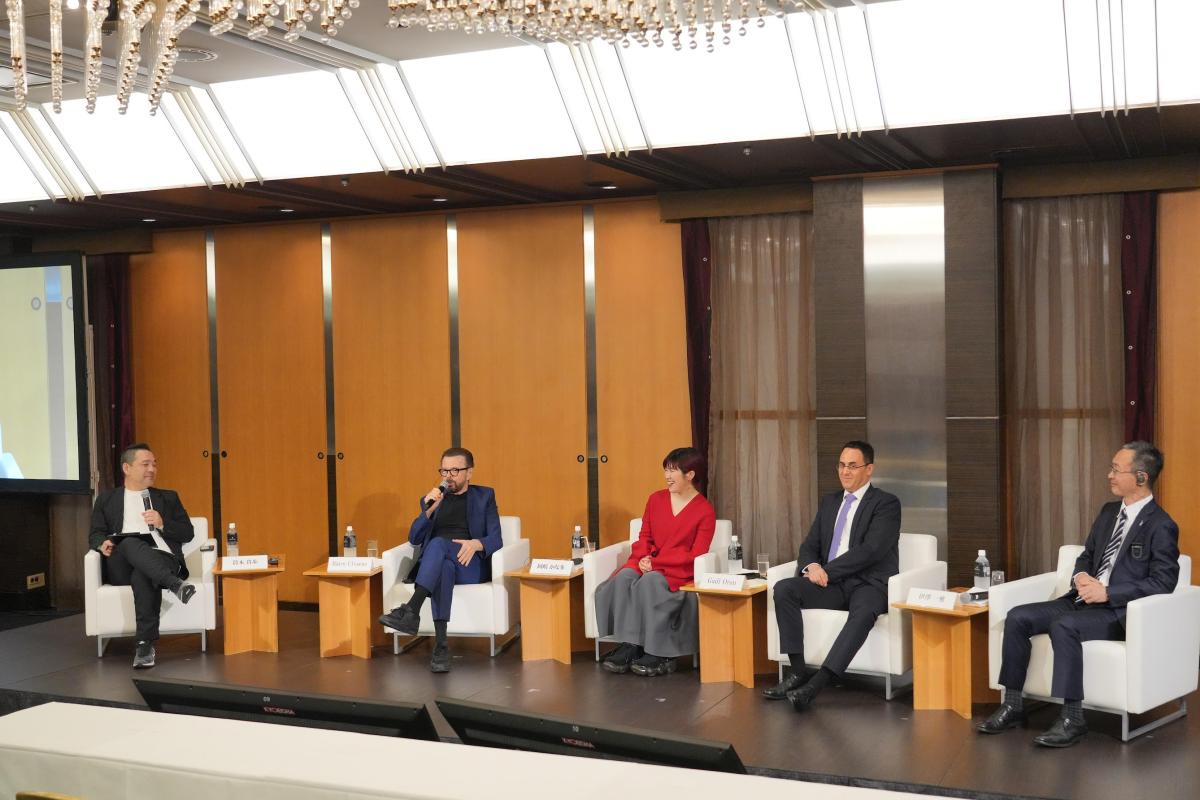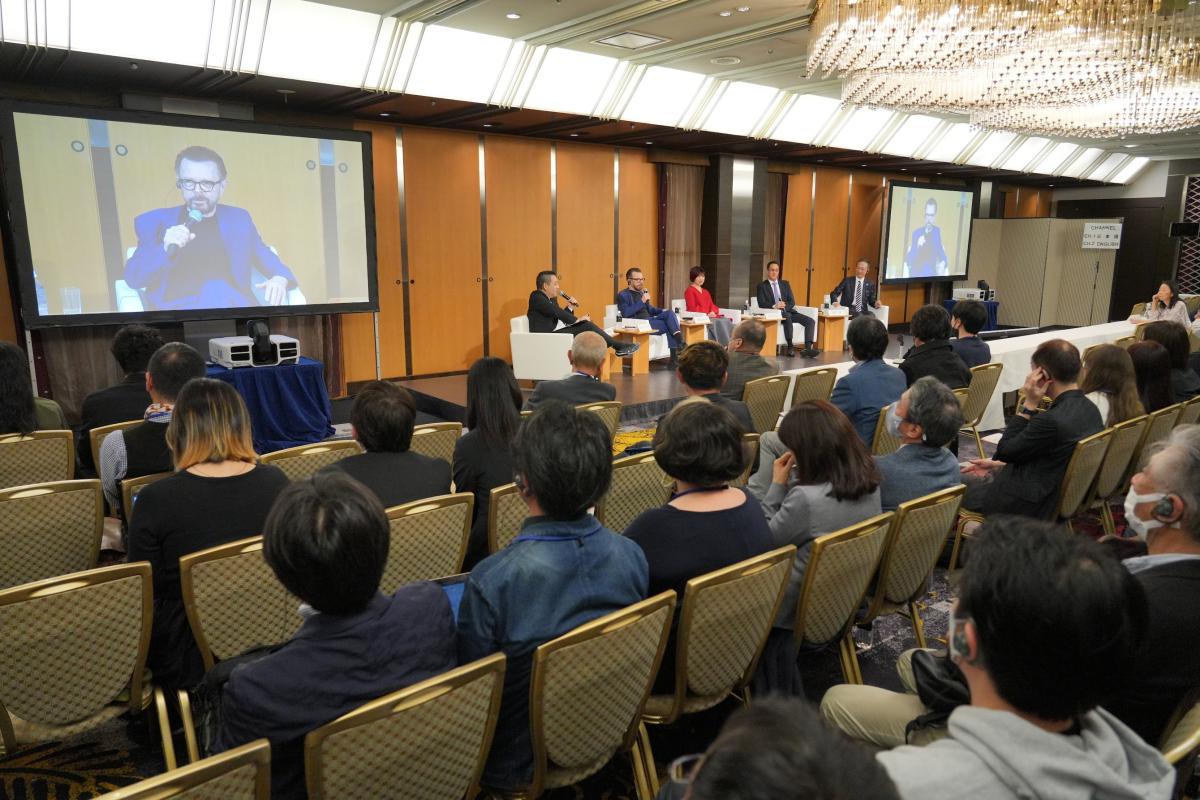CISAC President Björn Ulvaeus at JASRAC Creators’ Seminar: “no one backs songwriters like societies do”

CISAC President Björn Ulvaeus has urged creators to unite around their societies worldwide to ensure that the rights of creators are effectively protected. “Societies such as JASRAC and CISAC are the only organisations that have the songwriter's back and loyalty at all times,” he said. “They are working exclusively for you as a songwriter at all times.”
Ulvaeus was speaking at the Creators’ Seminar “Music in the Digital Era”, an event organised by Japanese society JASRAC, in partnership with CISAC, in Tokyo on Thursday April 6th.
Improving streaming metatada
One key issue discussed by the panel was data. Ulvaeus invited creators and stakeholders in the music sector as well as digital services to fix data issues to ensure that works get properly identified and creators get paid. Ulvaeus said creators need help from other stakeholders in the industry, like publishers and labels, to make sure that the relevant metadata is included in all tracks. “This is something I think should even be regulated so that no streaming service would allow music to be uploaded without the metadata,” said Ulvaeus.
CISAC Director General Gadi Oron said data is “one big challenge that we are facing.” CISAC has a major educational effort to encourage adoption of the music works identifying code ISWC, enabling efficient and accurate identification of music works and payment of creators. CISAC and its members around the world, said Oron, are “working at an international level to help improve the systems so that societies can deliver accurate identification of the works and the rights holders, and help process the payments much quicker.”
The songwriter is the “poor cousin from the country”
The panel addressed concerns over the low revenue share earned by creators from the digital use of music. Japanese authors, composer, and music producer Kanata Okajima, who had over 120 No.1 hits in Japanese charts, concurred that the industry was changing from physical to online subscriptions. “If you want to make a living, you have to write a huge hit or you have to write a bunch of songs to get enough copyright to make enough income to make a living,” said Kanata.
Ulvaeus noted that too small a share of the income from DSPs goes back to authors and composers. “That’s what I call the songwriter being marginalised, especially in view of the fact that this industry is a song economy. It all revolves around songs. And yet the songwriter is treated like the poor cousin from the country, and I don't think that's right. I think the songwriter is the star, together with the artist, and should be treated as such.”
To achieve such goal, creators have to be unified. He invited “old songwriters and young songwriters to unite under one organisation like a collecting society, such as JASRAC, to engage and involve themselves more in these organisations and make themselves heard. That is one way of making an impact for change.”
AI and copyright implications
The discussion also focused on the changes brought by the development of Artificial Intelligence-powered tools. Ulvaeus, who used AI for ABBA's virtual show 'Voyage' in London, said AI can be an exciting tool for creators. “When used to help write a song, or lyrics, it is not a threat, it is a tool,” he said, adding that AI also raises important copyright issues.
“These issues need to be discussed at the highest level because it is global,” he explained. “It concerns us as human beings.” For Ulvaeus, the debate on AI and copyright “is still to be had and it is very urgent. There is nothing we can do to stop it. We have to accept that it is happening, but we need to discuss the copyright issue.”
“Are works created by AI works of authorship?” asked Oron. “Should they be registered with societies, and should societies collect royalties for them? Are they even protected under copyright law? It is a major challenge and there are no clear views on that yet.”
JASRAC President Izawa Kazumasa suggested that AI could also be used to improve collection and distribution systems. “We started using a lot of computers and we went into the cloud, and used automated machines,” he explained. “Technology has played a role to make things efficient.”
He added: “I don't think AI is going to change JASRAC's copyright management. If a creator or a publisher says this is a work that has been created by a human being, we will protect this copyright and the rest is of the responsibility of that person. I think creators are going to use this technology as a tool and will have to explain if they use that technology. This will be the responsibility of the creator.”
To see a recording of the full discussion, go here.

